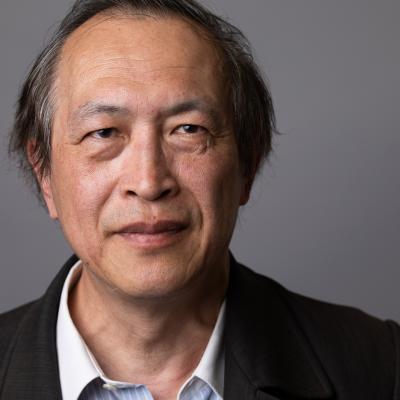Cultural translation and interpreting of Covid-19 risks among London’s migrant communities


Overview
One of the key responses to the Covid-19 crisis is change in individuals’ behaviour.
The success of social distancing, hand-washing, or the wearing of masks/face coverings all depend on individual members of the community adopting these measures. This change of behaviour relies on accurate, reliable and accessible information about Covid-19 and a good understanding of risks associated with Covid-19 among all members of the community. For this, language and understanding of culture are both crucial. This project will investigate public health discourses related to Covid-19 among linguistically diverse communities in London, focussing on languages of Africa and Asia.
London is a highly multilingual community – there are more than 200 languages spoken in London’s primary schools. London’s multilingual and multicultural communities have access to, and rely on, discourses and information about Covid-19 in several languages. Information provided in English by UK media, government agencies, local authorities etc, is augmented by information provided in the community language and from outside of the UK from official channels as well as social media. London’s migrant, ethnic, and minority communities are thus engaged in translating and interpreting Covid-19 information from different sources and often adopting a variety of perspectives, and this will inform their understanding of and their behavioural response to the pandemic.
The current project will investigate how information about Covid-19 and associated risks flows and is translated in a range of London’s diverse linguistic repertoire of languages such as Standard Arabic, Algerian Arabic, Chinese, Hindi, Indonesian, Japanese, Korean, Persian, Punjabi, Turkish, Urdu, Swahili, and Yoruba. Our goal is to understand how London’s migrant/ethnic/minority communities receive information about Covid-19 and how that information and its cultural context impact on their reactions and everyday practice in this environment. For example, Japanese speakers in London have access to at least two free community newspapers and the Japanese embassy sent translations of Boris Johnson’s key speech introducing the first lock-down and various Covid-19 related information to registered Japanese citizens. The UK-internal perspective on addressing the Covid-19 crisis is thus contrasted with external perspectives, which are often critical of the UK’s approach.
In order to understand these multilingual and multicultural discourses, the project will investigate five key questions:
- How London’s multilingual and multicultural communities interpret and translate the information they receive from different sources, including information from their home countries and their local communities, and how this impacts on their understanding of Covid-19 and their social behaviour
- To what extent communities’ understanding is coloured by their different cultural, linguistic and social backgrounds and their processes of cultural translation
- To what extent some communities are at higher risk of contracting or transmitting Covid-19 because they do not understand relevant public health advice
- How information about Covid-19 can be better communicated or translated for London’s diverse linguistic and cultural communities
- What lessons can be learned from this pandemic for public health communication in the future
The project will draw on the extensive language and cultural expertise at SOAS University of London in collaboration with public agencies and community representatives. It will collect, document, and synthesize individual accounts from multilingual community members in London, information in the target languages published in London, and information available to community members from their (historical) home countries, their governments and on social media.
Languages
Arabic, Bengali, Hebrew, Hindi, Indonesian, Japanese, Korean, Persian, Punjabi, Somali, Sylheti, Swahili, Turkish, Urdu, Yoruba.
Aims
The aim of this research is to understand why people differ in their understanding and interpretation of Covid-19, and whether these differences are related to the language/s people speak, read, and write other than English. London’s multilingual communities have access to and receive different kinds of information in different languages, which sometimes contains conflicted information. This raises the question of which kind of sources members of these communities are more likely to believe and whether this affects how they react to Covid-19 and to Covid-19 vaccines. Do people think that “their community” is doing everything they can stop Covid? Do people receive enough information about protection from Covid and about vaccines?
To answer those questions, the project
- Conducts an online survey, mainly amongst ethnic and minority communities
- Holds focus group interviews, group interviews, and individual interviews
- Analyses narratives about Covid based on collected public information, and compares these analyses to the outcome of the survey and interviews. This will allow us to answer our research questions and to provide practical advice.
We are currently conducting survey research focused on ethnic and minority communities. Because of the lockdown, the survey is done electronically. We received 544 responses so far. Most of the participants are part of one of the language- and minority communities our team is specialized on.
We have to note that not everyone who considers themselves part of ethnic and minority communities has access to the internet, e-mail, social media, or any form of electronic communication. Our first survey has been conducted in English, and we plan to conduct group interviews when the situation permits, to better understand community members who do not have access to the internet or languages widely spoken in the UK.
The key questions we asked in the survey were about how and from where participants received information about Covid-19, if they think they understand Covid-19, if their communities are doing everything to prevent Covid-19, and how they understand vaccination.
This first survey report summarises the responses we received to the questions above. Our analysis does not include adjustments for demographic structure. However, we find that respondents are evenly distributed over all age ranges. The only exception are over 60 year olds, which appear to be slightly underrepresented, presumably because the survey has been conducted electronically. Respondents were recruited through various electronic channels, often social media, selected by our language community experts.
PDF document, 427.87KB
Report 2
UKRI/AHRC Covid-19 research project report 2: Cultural translation and interpreting of Covid-19 risks among London’s ethnic and minority communities (CTS, SOAS University of London)
Continuing our online survey, we have received 702 responses until 21 April 2021 (including some outside the scope of the project).
In this month’s report, language communities and vaccines will be the focus. The language communities for which we show results here are Hindi, Indonesian, Japanese, Persian/Farsi, Punjabi, Swahili, Turkish, and Yoruba. These are the communities from which we received over 30 response. From the Indonesian and Japanese communities came the largest numbers of responses, 103 and 98 respectively.
In each language group a certain percentage of people responded that they did not get and are not planning to get a Covid-19 vaccination. The proportion amongst respondents varies between 5.1% and 17.2%. Similar proportions answer that they are unsure. Below we provide a detailed breakup.
Comparing the reasons these people give, we see that most are uncertain about the reliability of the vaccine. Respondents stated that they
- are worried about vaccine safety.
- did not get enough information about the vaccine.
- do not believe the vaccine will work.
We will continue research on the factors that affect attitudes to vaccination in the communities we study. We plan to publish Report 3 on the outcome of online survey in May.
In May we will also begin the second phase of our survey, in which we conduct in-depth interviews with members of selected language communities in London. Because evaluation of these interviews involves transcription and translation, reporting the outcomes will take a bit of time. We plan to report detailed results of the interviews around July.
Please note that not all survey questions and responses are published below. To read all questions, please visit the survey: Click here to read the survey: Covid-19 Survey (google.com)
PDF document, 560.22KB
Report 3
UKRI/AHRC Covid-19 research project report 3: Cultural translation and interpreting of Covid-19 risks among London’s ethnic and minority communities (CTS, SOAS University of London)
Continuing our online survey, we have received 831 responses until 7 May 2021 (including some outside the scope of the project).
In this report, language communities and vaccines will be the focus. The language communities for which we show results here are Arabic, Bengali, Chinese, Korean, Sylheti, Turkish. We also show the result for the Hasidic community. These are the communities from which we received over 30 response.
In each language group and a community, a certain percentage of people responded that they did not get and are not planning to get a Covid-19 vaccination. The proportion amongst respondents varies between 3.4% and 16.7 %. Similar proportions answer that they are unsure. Below we provide a detailed breakup.
Comparing the reasons these people give, we see that most are uncertain about the reliability of the vaccine. Respondents stated that they
- are worried about vaccine safety
- did not get enough information about the vaccine
- do not believe the vaccine will work.
We will continue research on the factors that affect attitudes to vaccination in the communities we study. We plan to publish Report 3 on the outcome of online survey in May.
As noted in the report 2, we will also begin the second phase of our survey, in which we conduct in-depth interviews with members of selected language communities in London. Because evaluation of these interviews involves transcription and translation, reporting the outcomes will take a bit of time. We plan to report detailed results of the interviews around July.
PDF document, 467.60KB
Report 4
UKRI/AHRC Covid-19 research project report 4: Cultural translation and interpreting of Covid-19 risks among London’s ethnic and minority communities (CTS, SOAS University of London)
Continuing our online survey, we have received 831 responses up to 7 May 2021. After removing responses from respondents who are not within the project’s scope, there 688 responses which are the subject of this report. The survey responses include all the languages we list above. Our analysis does not include adjustments for demographic structure.
We have to note that not everyone who considers themselves part of ethnic and minority communities has access to the internet, e-mail, social media, or other forms of electronic communication. Our first survey has been conducted in English, as noted in Report 1. However, for some languages, e.g., Sylheti and Yiddish, researchers translated the questions to respondents in order to obtain more than 30 responses, which is the threshold for inclusion we set for this survey.
Compared to the results of Report 1 there were no major changes in the distribution of responses, when analysed for all language and ethnic minority communities. However, as we have shown in Reports 2 and 3, there are differences between communities, e.g., in the response regarding vaccines.
The key questions we asked in the survey were how and from where participants received information about Covid-19, if they think they understand Covid-19, if their communities are doing everything to contain the spread of Covid-19, and how they understand vaccination. Compared to the results from Report 1, we did not see major changes in the answers to any of these questions. As in Report 1, we include below several free text answers from respondents.
Responses to Question 9-1 show that a high number of participants feel that their communities are not doing their best to help prevent the spread of Covid-19. The free-text responses to the follow-up question show that there are language and cultural barriers.
Please note that not all survey questions and responses are published below. To read all question, please visit the survey: Covid-19 Survey (google.com).
PDF document, 754.99KB
Further information
Researchers
- Nana Sato-Rossberg (principal investigator)
- Yan Jiang (co-investigator)
- Lutz Marten (co-investigator)
- Edward Simpson (co-investigator)
- Rosa Vercoe (project administrator)
- Bukola Aluko-Kpotie
- Aicha Belkadi
- Narguess Farzad
- Ida Hadjivayanis
- Nancy Hawker
- Youkyung Ju
- Amy Parsons
- Soe-Tjen Marching
- Burçin Mustafa
- Naresh Sharma
- Satona Suzuki
- Marie Thaut
- Abshir Warsame
Funders






